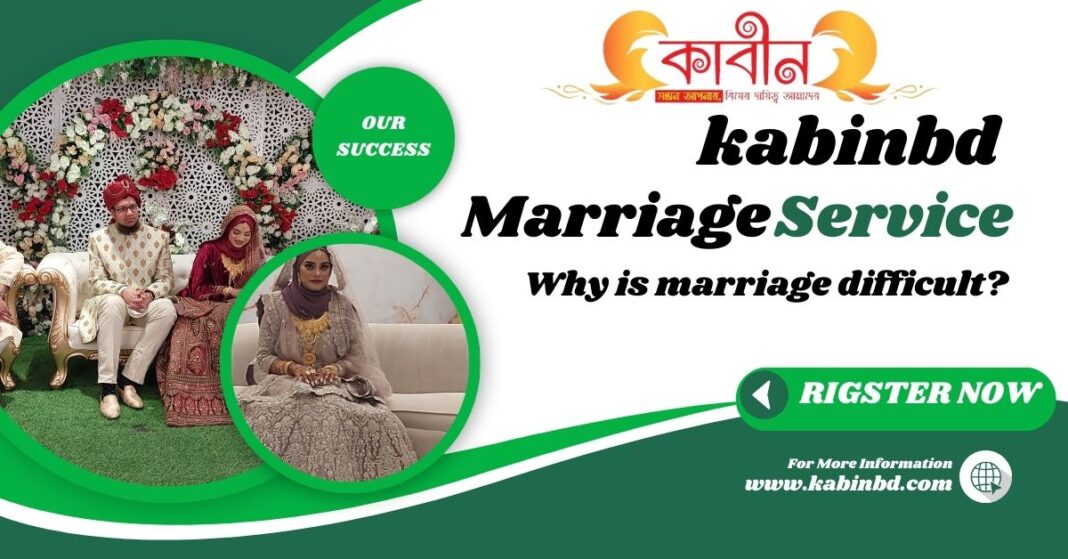Why is marriage difficult?
Marriage, a union between two individuals, is often viewed as one of the most significant and sacred commitments a person can make. For centuries, marriage has been a cornerstone of societies around the world, symbolizing love, partnership, and the creation of families. Despite its many rewards, marriage can also be incredibly challenging. In fact, many couples find that maintaining a healthy, lasting marriage requires effort, communication, compromise, and patience.
There are various reasons why marriage is difficult, and these difficulties can arise from both internal and external factors. The complexities of human emotions, the changing dynamics of modern society, and the evolving expectations around marriage all contribute to the challenges many couples face. In this essay, we will explore why marriage can be difficult by delving into the following topics: personal expectations, communication barriers, differences in values and beliefs, financial stress, societal pressures, and the impact of children. Additionally, we will examine how changing cultural norms and individualism have further complicated the institution of marriage.
Unrealistic Expectations of Marriage

One of the primary reasons why marriage can be difficult is the unrealistic expectations that people often bring into the relationship. In many cultures, marriage is portrayed as a source of everlasting happiness, love, and emotional fulfillment. Movies, books, and popular culture often depict marriage as the pinnacle of romantic love, where everything falls into place effortlessly once two people are united. However, this romanticized view of marriage rarely aligns with reality.
In truth, marriage is often filled with ups and downs, moments of joy as well as challenges. When couples enter marriage with the expectation that their partner will always meet their emotional, physical, and mental needs, they are setting themselves up for disappointment. No single person can fulfill all of another person’s needs. When expectations are not met, frustration, resentment, and dissatisfaction can grow.
Additionally, some individuals expect marriage to “fix” their personal issues. If someone is unhappy, lonely, or struggling with personal insecurities, they may believe that marriage will solve these problems. However, unresolved personal issues can carry into the marriage and exacerbate conflicts, making it difficult for couples to maintain a harmonious relationship. One of the primary reasons why marriage can be difficult is the unrealistic expectations that many individuals bring into the relationship. These expectations often stem from societal norms, media portrayals, personal upbringing, and a romanticized view of love and marriage. While marriage is a rewarding partnership, it’s also a complex and evolving relationship that requires effort, patience, and a deep understanding of oneself and one’s partner.
Unrealistic expectations can create disappointment, frustration, and resentment when reality does not meet the idealized vision. To understand why these expectations form and how they affect marriages, it’s important to explore their origins, their impact on relationships, and strategies to manage them.
Origins of Unrealistic Expectations
- Cultural and Media Influence
In many cultures, marriage is depicted as the ultimate expression of romantic love, often portrayed as a fairy tale ending where happiness is assured. From movies to books and social media, there is a persistent narrative that once you meet “the one” and marry, everything else will fall into place. Love is depicted as the solution to all life’s problems, and the notion of “happily ever after” is often ingrained in individuals from a young age.
This idealized portrayal of marriage can lead people to believe that their partner should always meet their needs, provide constant emotional support, and be a source of unending happiness. The problem with this narrative is that it ignores the reality that marriage, like any relationship, involves challenges, compromise, and personal growth.
-
Family Influence and Upbringing
People’s expectations of marriage are also shaped by their upbringing and the marriages they observed growing up. If someone grew up in a household where their parents had a seemingly perfect relationship, they might expect their own marriage to follow a similar path. Alternatively, those who witnessed unhealthy relationships may have skewed expectations, believing that their marriage will either be a perfect antidote to their past or fear that it will follow the same patterns.
Family and cultural norms also play a role in shaping expectations around gender roles, division of responsibilities, and the purpose of marriage. For instance, some cultures may emphasize marriage as a means of financial stability or familial duty, while others may stress romantic love as the foundation of a successful union.
-
Personal Fantasies and Idealization
Before entering into marriage, people often idealize their partner and the relationship, focusing on the positives while ignoring potential challenges. In the early stages of a relationship, love hormones like dopamine and oxytocin create feelings of euphoria and connection, making it easier to overlook flaws. This stage of infatuation often leads individuals to believe that their partner is perfect or that the relationship will remain in this blissful state forever.
However, as the relationship matures and the initial infatuation fades, the realities of daily life and the partner’s imperfections become more apparent. This shift from idealization to reality can be jarring for some, leading to disappointment if they are not prepared for the natural evolution of the relationship.
Types of Unrealistic Expectations
- Perfection and Constant Happiness
One of the most common unrealistic expectations is the belief that marriage will bring constant happiness and that the relationship should be free of conflict or hardship. While marriage can bring great joy and fulfillment, expecting perpetual happiness is unrealistic. Life is full of challenges, including financial stress, health issues, and personal struggles, all of which can affect the dynamic of a marriage.
Additionally, expecting perfection from a partner sets both individuals up for failure. No one is perfect, and holding a spouse to unattainable standards can lead to feelings of inadequacy and frustration on both sides. In reality, successful marriages are built on accepting each other’s flaws and learning to navigate life’s difficulties together.
-
The Partner as a “Fix-All” Solution
Another unrealistic expectation is the belief that marriage or a spouse will “fix” personal problems or emotional wounds. People may enter marriage with unresolved issues such as low self-esteem, anxiety, or emotional trauma, believing that their partner’s love will heal these wounds. However, relying on a partner to fulfill all emotional needs can place an immense burden on the relationship.
Marriage is a partnership, and while spouses can offer support and love, each person must take responsibility for their own mental and emotional well-being. Expecting a partner to solve personal problems can lead to disappointment when they inevitably fall short of these expectations.
-
The Idea of Effortless Love
Many people expect that love, once established, will sustain itself without effort. This expectation is often fueled by romantic narratives that portray love as a force of nature that requires little maintenance. In reality, love requires ongoing nurturing, communication, and effort to grow and thrive. Couples who believe that their relationship will remain strong without active work may find themselves drifting apart over time.
Marriage involves navigating changing circumstances, personal growth, and evolving needs. Without regular communication, attention, and care, even the strongest relationships can falter. Expecting love to flourish without effort can lead to complacency and neglect of the relationship.
-
Expecting a Single Person to Meet All Needs
Marriage is often seen as the ultimate partnership, where two people provide for each other’s emotional, physical, and mental needs. However, expecting one person to meet all of these needs is unrealistic and can place undue pressure on both partners. A healthy relationship allows space for each partner to seek fulfillment from other sources, such as friendships, hobbies, and personal growth.
When one partner expects the other to be their sole source of happiness, comfort, and fulfillment, it can lead to emotional dependency and strain. Marriage should enhance one’s life, but it cannot be the sole source of all emotional needs.
Impact of Unrealistic Expectations on Marriage
Unrealistic expectations can have several negative effects on a marriage. First, they often lead to disappointment and disillusionment when reality doesn’t align with the idealized version of marriage. This disappointment can erode trust and intimacy, creating a sense of emotional distance between partners.
Moreover, unmet expectations can lead to frustration, resentment, and conflict. When one partner feels that their needs are not being met, they may become resentful or critical of the other person. This creates a cycle of blame and defensiveness, which can be difficult to break.
Additionally, unrealistic expectations can prevent couples from developing healthy communication and problem-solving skills. Instead of working through challenges together, couples may avoid difficult conversations or expect their partner to automatically know what they need. This lack of communication can exacerbate issues and create further distance in the relationship.
Managing Unrealistic Expectations
To build a successful and lasting marriage, it’s important to recognize and manage unrealistic expectations. Here are some strategies to help couples navigate this challenge:
-
Open and Honest Communication
The foundation of any successful marriage is communication. Couples should regularly discuss their needs, expectations, and feelings openly and honestly. By having candid conversations about their desires and concerns, partners can gain a better understanding of each other’s perspectives and work together to manage expectations.
-
Set Realistic Goals for the Relationship
Instead of expecting perfection or constant happiness, couples should focus on setting realistic goals for their relationship. This includes understanding that there will be challenges, but that working through them together can strengthen the partnership. Celebrating small victories and focusing on personal growth can also help couples maintain a positive outlook on their marriage.
-
Prioritize Personal Growth and Self-Care
Each individual in a marriage is responsible for their own personal growth and well-being. By taking care of their emotional and mental health, individuals can contribute positively to the marriage. This means seeking fulfillment from various sources, such as hobbies, friendships, and self-care practices, rather than relying solely on a spouse for happiness.
-
Seek Professional Support
If unrealistic expectations are causing significant strain on a marriage, seeking professional support from a therapist or counselor can be beneficial. Marriage counseling can help couples work through their expectations, improve communication, and develop healthy coping strategies for navigating challenges.
Communication Challenges
Effective communication is crucial in any relationship, but it is particularly vital in a marriage. Despite this, communication problems are one of the most common challenges that married couples face. Misunderstandings, poor listening skills, and an inability to express one’s thoughts and feelings can lead to frustration and conflict. Over time, unresolved communication issues can erode trust, intimacy, and emotional connection.
Many people struggle with communication because they were never taught how to effectively share their thoughts, needs, and emotions in a healthy way. Instead of engaging in open and honest conversations, they may shut down, avoid difficult topics, or resort to passive-aggressive behavior. Others may have a tendency to criticize or blame their partner, which can create a defensive environment where real communication is difficult.
Differences in Values and Beliefs
When two people come together in marriage, they bring with them their individual values, beliefs, and backgrounds. These differences can be a source of strength, as they allow couples to learn from each other and grow together. However, they can also be a source of conflict, particularly if the couple has not fully discussed or aligned their values before marriage.
Financial Stress
Money is often cited as one of the leading causes of conflict in marriage, and financial stress can put a significant strain on even the strongest relationships. Whether it’s due to differences in spending habits, income disparities, or financial instability, money can be a major source of tension in a marriage.
Couples who have different attitudes toward money may find it difficult to agree on how to budget, save, and spend. One partner may be more frugal and cautious with money, while the other may be more carefree and willing to spend on luxuries. These differences can lead to arguments and feelings of frustration, especially if financial decisions are made without consulting the other partner.
In addition, financial stress can arise from external factors, such as job loss, medical bills, or economic downturns. When couples are struggling to make ends meet, the pressure can cause anxiety, frustration, and feelings of inadequacy. If not managed properly, financial stress can create a cycle of blame and resentment, making it difficult for couples to work together as a team.
Societal Pressures and Expectations
Society places a great deal of pressure on married couples to conform to certain ideals and expectations. From the pressure to have children to the expectation of maintaining a perfect work-life balance, societal norms can create unrealistic standards that can be difficult to meet.
For example, many couples feel societal pressure to have children soon after getting married. While having children can be a wonderful and fulfilling experience, it can also bring additional stress and strain to a marriage. Raising children requires time, energy, and financial resources, and the demands of parenthood can sometimes overshadow the relationship between the spouses. Couples who are not ready to have children or who choose not to have children may also face judgment or criticism from family and society, adding additional stress to their marriage.
Moreover, societal expectations about what a “successful” marriage should look like can create feelings of inadequacy or failure. For example, the pressure to maintain a dual-income household while also being actively involved in raising children and maintaining a social life can be overwhelming. When couples feel that they are not living up to these expectations, they may experience stress, frustration, and a sense of failure.
The Impact of Children
Children are often described as the greatest blessing in a marriage, but they can also bring significant challenges. The arrival of children changes the dynamics of a relationship, and many couples struggle to adjust to their new roles as parents. The demands of raising children, especially in the early years, can take a toll on a marriage.
New parents often experience sleep deprivation, increased stress, and a lack of personal time. The focus shifts from the couple’s relationship to the needs of the child, which can lead to feelings of neglect or isolation. Couples may also disagree about parenting styles, discipline, or how to balance work and family life. These disagreements can create tension and conflict within the marriage.
Additionally, the division of household and childcare responsibilities can become a point of contention. If one partner feels that they are shouldering more of the burden, they may become resentful. The stress of balancing work, household chores, and parenting responsibilities can leave little time for couples to nurture their relationship, leading to emotional distance and a decline in intimacy.
The Role of Technology and Social Media
Technology and social media have transformed the way people communicate and interact, and these changes have had a significant impact on marriage. While technology can help couples stay connected, it can also create new challenges and sources of conflict.
For example, social media can create unrealistic comparisons, as couples may feel pressure to live up to the “perfect” relationships they see online. This can lead to feelings of inadequacy or dissatisfaction with one’s own marriage. Additionally, the constant distraction of smartphones and social media can interfere with quality time and communication between partners.
In some cases, technology can also lead to issues of trust and infidelity. With the ease of online communication, some individuals may engage in emotional affairs or inappropriate online behavior, which can damage the trust in a marriage.
Conclusion
Marriage is a complex and multifaceted institution that requires effort, communication, and compromise. While it can be a source of love, companionship, and personal growth, it can also be difficult due to the various challenges couples face. Unrealistic expectations, communication barriers, differences in values, financial stress, societal pressures, and the demands of raising children are just a few of the factors that can make marriage challenging.
In today’s changing cultural landscape, the rise of individualism, technology, and shifting societal norms have further complicated marriage. However, despite these difficulties, many couples are able to navigate the challenges and build strong, lasting partnerships by working together, communicating openly, and supporting each other through the ups and downs of life.
Marriage may be difficult, but with patience, understanding, and commitment, it can also be one of the most rewarding and fulfilling experiences in life.
Best Bangladeshi Matrimonial Service
আপনি যদি বিয়ের ব্যাপারে সিরিয়াস হয়ে থাকেন তবে
লিংকে ক্লিক করে ফ্রী রেজিষ্ট্রেশন করুন
অথবা বিস্তারিত জানতেঃ
Gmail:kabinbd4@gmail.com
01711462618 এ কল করুন ২৪/৭ সার্ভিস

























